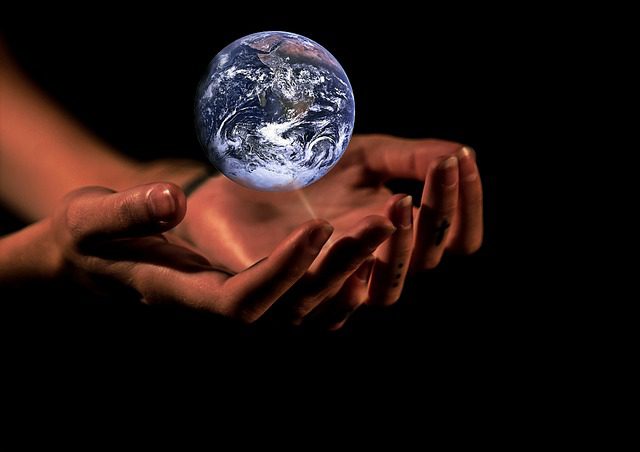As far back as I can remember, I loved animals, plants, and trees — really anything that was outdoors and wild. Simply put, I was fascinated by the natural world. My interest was magnified when I spent a summer holiday in the Midlands with my grandparents. Even though I was only four years old, I remember so vividly the fresh air, birds singing, woodlands, ponds, and open green spaces. It seemed a world away from my Southeast London Council Estate environs of passed-out vagrants, smashed street lights, racist graffiti, broken bottles, burnt-out cars, and boarded up windows.
Sadly, the 1980s was an era of ceaseless environmental ignorance and I found that most of my peers were content to watch the world go by, detached from the conservation and ecological issues plaguing our environment.
Having failed miserably in the school system, it was my passion for the environment that led me back into the academic domain and to my choices of undertaking an undergraduate degree in Environmental Biology and a Masters degree in Environmental Planning and Management. Thenceforth, inspiring the next generation to take on the challenges of sustainability has been an issue at the centre of my journey.
Global warming, and its effect on climate, is one the most pressing issues facing the world today. Plastic pollution, deforestation, and air pollution are only some of the ways humans are damaging the environment. We as humans have become very dependent on luxuries such as cars, houses, and even our mobile phones.
We are already living outside the climate parameters that first gave rise to our species, and the world’s leading scientists agree that we have less than a decade to limit global warming to a maximum of 1.5°C.
Despite the urgency with which we must decrease greenhouse gas emissions, pull carbon out of the air, and redesign our social-environmental systems towards new ways of doing business, most decision-makers, from individual consumers to world leaders, have been excruciatingly slow to take action and most governments are not doing nearly enough.
Children are the future
Younger generations, however, seem to be clued in to the reality that there are indeed climate solutions to this global problem. From my own voluntary experience of working with schools, colleges, and universities, I have found that the vast majority of young people nowadays do care immensely for the environment and, indeed, the future of our planet.
Although young people regularly lead the debate about environmental matters, they are also the group with the least power to affect change in their communities. They can lack the tools, network, and influence to make things happen. When their energy and passion are given the right outlet and support though, the impact can be huge.
Solutions abound, both scientifically proven and financially feasible. They are interventions that can shift the way the world does business. The global economy is based on extractive and exploitative growth models, spewing greenhouse gases into the atmosphere through fossil fuel combustion, land conversion, and excessive consumption of everything.
Young people understand that the growth of these interventions needs to accelerate at a much faster rate. Along with the world’s poor, indigenous peoples, younger people will disproportionately experience the worst effects of climate change if too little is accomplished too late.
Acting now is essential for everyone and everything on this planet; however, as a motivating principle, ensuring that future generations can live healthy, meaningful lives should be humanity’s highest priority.
The critical point we all are facing together is an opening to bring young people into the conversation. Creating a future that we all want requires older and younger generations to work together for the change we need.
Older people who hold the reins of political, economic, and intellectual power today must listen to these voices of change, support new ideas and creative thinking, and rethink assumptions about the way the world works because this world will not be ours forever.
It is critical that we collaboratively protect the environment to reduce the destruction of ecosystems caused by a myriad of anthropogenic activities. Accomplishing all this, however, requires us all to make different decisions starting today by recycling, reusing, and composting; reducing our meat consumption, making better transport choices; reducing our electricity usage, and avoiding toxic chemicals.

Ketan Dattani
Ketan holds over 20 years of recruitment experience and has a high profile within the sector. Widely documented as an expert on Employment Law, Employee rights and for providing Careers Advice, Ketan is a graduate of Environmental Biology and post-graduate of Environmental Planning and Management, with certificates in Employment Law and Recruitment Practice - both nationally recognised recruitment qualifications developed jointly by the REC and key employers.

![Powerful Pride documentary Legendary Children [All Of Them Queer] streaming very soon](https://globalindianstories.org/wp-content/uploads/2025/06/Legendary-streaming-release-featured-238x178.jpg)



![Powerful Pride documentary Legendary Children [All Of Them Queer] streaming very soon](https://globalindianstories.org/wp-content/uploads/2025/06/Legendary-streaming-release-featured-100x75.jpg)

